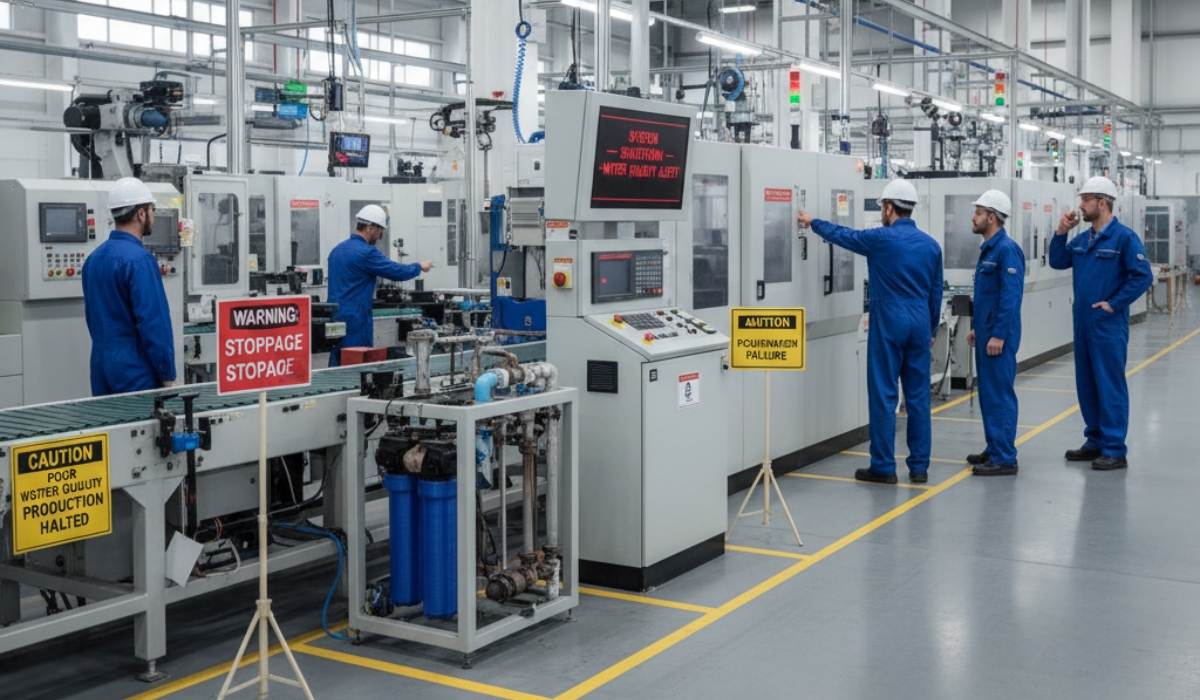The Hidden Costs of Using Poor Quality Water in Industrial Processes
Introduction In industrial operations, water plays a critical role—whether in boilers, cooling towers, manufacturing, or cleaning. While many businesses focus on minimizing operational expenses, one cost often overlooked is the impact of poor-quality water. Using untreated or low-grade water may seem like a small compromise, but in reality, it can lead to major financial losses, production downtime, and equipment damage. This article explores the hidden costs of poor-quality water in industries, and why investing in reliable RO and DM water supply is the smarter long-term choice. 1. Equipment Damage and Maintenance Costs Poor-quality water contains minerals, salts, and impurities that cause scaling, corrosion, and deposits inside machinery and pipelines. Scaling in boilers leads to reduced heat transfer and increased fuel consumption. Corrosion in cooling towers can shorten equipment lifespan. Frequent repairs and replacements add up to unnecessary expenses. 💡 Case in Point: A single millimeter of scale in a boiler can increase fuel usage by up to 10%, drastically raising operational costs. 2. Production Downtime and Losses When water-related issues force equipment shutdowns, the entire production line suffers. Downtime means missed deadlines and client dissatisfaction. Unexpected shutdowns reduce overall efficiency. In competitive industries, even a few hours of delay can cause significant financial setbacks. 3. Reduced Product Quality Water used in industrial processes often comes in direct contact with the final product (e.g., pharmaceuticals, food, and beverages). Poor-quality water can compromise purity, taste, and consistency. In sensitive sectors like pharmaceuticals and electronics, even minor contamination leads to batch rejections. This results in loss of raw materials, wasted labor, and reputational damage. 4. Increased Energy Consumption When water quality is poor, systems like boilers and cooling towers need more energy to perform. Scaling in boilers forces them to work harder. Inefficient cooling systems consume excess electricity. Over time, the energy bills skyrocket—a cost many businesses fail to track. 5. Environmental Penalties and Compliance Issues Industries are under strict regulations for water discharge and environmental compliance. Poor-quality water may result in higher effluent treatment costs. Failure to meet compliance can attract penalties and legal consequences. Sustainable water usage improves both compliance and brand reputation. Conclusion Cutting corners on water quality often results in hidden operational costs far greater than the expense of sourcing reliable, purified water. By choosing high-grade RO and DM water supply, industries can: Protect their equipment Ensure smooth production Maintain consistent product quality Reduce energy consumption Stay compliant with environmental standards In the long run, investing in quality water supply is not just a cost-saving decision—it’s a growth strategy. 👉 Don’t let poor-quality water drain your profits. Partner with Shree Shyam RO Water Supplier for reliable bulk RO and DM water delivery in Alwar & Matsya Industrial Area.Contact us today at 📞 +91-9414901166 or visit 🌐 rowater.co.in to ensure your industry runs on pure, cost-effective, and sustainable water solutions.

